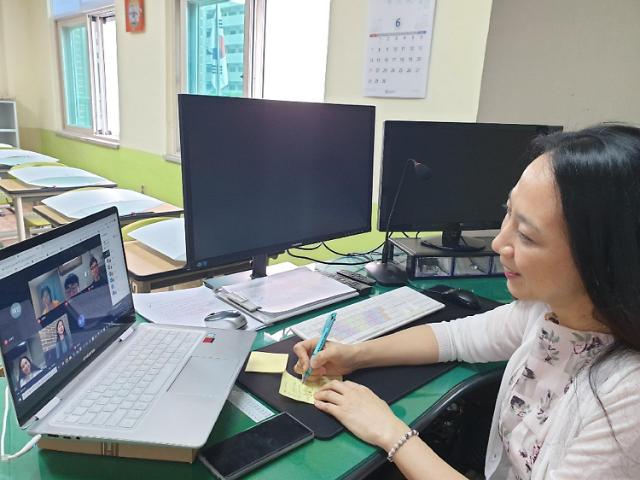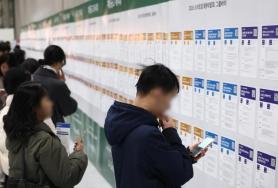
[Courtesy of the Daegu Office of Education]
The Ministry of Education and the Ministry of Science and ICT said in a joint statement on August 10 that a two-week online learning program was implemented for the first selected group of 1,000 teachers and school workers to experience different kinds of online classes and develop skills to seamlessly operate remote classrooms.
"In response to the shift in the non-face-to-face era, not only school classes but also teaching methods should be changed," an education ministry official was quoted as saying. The official said that the government will continue to develop new teaching models to strengthen the online class capability of teachers.
Remote classrooms were adopted in South Korea after classes were suspended to prevent the spread of COVID-19 in March. A month later, South Korea's elementary, middle and high schools opened their new semester of 2020 through online classes. To help students with limited internet access, the government rolled out a supportive program to provide laptops, computers and wireless internet devices.
The adoption of online classes has caused confusion among both students and teachers as they had no experience in such a learning method. Especially, first-grade primary school students who started their compulsory education were slow to adapt to the new teaching method.
"My seven-year-old son struggled to follow the online curriculum provided by his school. He was new to learning and he found it hard to focus on the education program," Lee Jeong-ok, a 41-year-old restaurant owner, told Aju news.
Students have gradually returned to schools in late May after South Korea's disease control body and the education ministry agreed to open schools as long as students and teachers follow the strict anti-epidemic guidelines. However, schools had to close and switch to online classes whenever students infected with COVID-19 were found. At the end of July, about 180 schools operated remote classrooms
Copyright ⓒ Aju Press All rights reserved.




